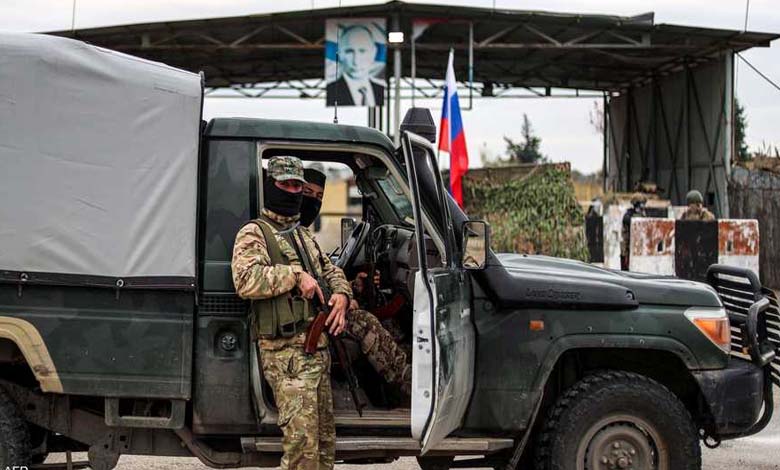Observatory: Russia Transferred Syrian Officers to a Base in North Africa

The Syrian Observatory for Human Rights confirms the transfer of dozens of senior officers from the former Syrian army from Russian bases in Syria in two waves after the fall of Bashar al-Assad‘s regime.
The Syrian Observatory for Human Rights revealed that the Russian military transferred dozens of senior officers from the former Syrian army to a Russian base in North Africa, hinting at Libya, where Moscow has military bases in the eastern region.
-
Russia Accuses the U.S. and the U.K. of Recruiting Agents to Target Its Bases in Syria
-
Erdogan gives Syrian Kurds the choice between laying down arms or death
According to reliable sources cited by the Observatory, the reasons for the transfer and the future destination of these officers remain unknown, although it was stated that they were moved in two waves.
“The first wave took place on December 8, during the fall of the regime and the flight of Bashar al-Assad. It involved dozens of senior intelligence officers, military leaders, and influential state figures, including individuals sanctioned by the U.S. and the EU,” the Observatory said.
-
Ukraine and the specter of nuclear war in 2024: A tightrope walk
-
Bashar Al-Assad: Details of the Final Days in Syria
“The second wave occurred on December 13, when senior officers were transferred aboard a Russian military cargo plane.”
The current fate of these officers is unknown, nor whether they will be used by the Russian military in other conflict zones, such as Libya or the African Sahel region, as mercenaries.
Russian forces had withdrawn from several positions in Syria to redeploy to two bases: the Hmeimim airbase in Latakia and the Tartous naval base on the Mediterranean coast.
-
Transfer of Armed Elements from Syria to Libya… A New Muslim Brotherhood Plan
-
Moscow Surrounds Its Presence in Syria with a “Shield of Mystery”
The Observatory added that Russian cargo planes at Hmeimim and ships at Tartous had been transferring their nationals, officers, and soldiers in successive waves even before Bashar al-Assad‘s flight.
New security forces in Syria are still searching for several former military leaders involved in crimes against opponents.
After the regime’s fall, members of Hay’at Tahrir al-Sham spoke outside Russian bases, referring to the presence of Syrian officers involved in torture and murder of Syrians and calling for their extradition.
-
“Including Syria and Lebanon”: How the Israeli Army Prepares for “Operation Winter”
-
Russia Reduces Military Presence in Syria Following al-Assad’s fall
Russia has supported Syria since the early days of the Cold War, recognizing its independence in 1944 when Damascus sought to rid itself of French colonialism. The West long considered Syria a vassal of the Soviet Union.
With the collapse of the Soviet Union in 1991, many Russian military installations closed their doors. However, Moscow kept its naval base in Tartous, though reducing its size and capabilities.
The situation changed in 2010 when Russian President Vladimir Putin adopted a more ambitious policy, increasing military spending to modernize the army and starting construction work to allow Tartous to accommodate larger ships.
-
Ukraine and Lebanon: Two Separate Wars That Changed Syria’s Fate
-
Latest Developments on the Syrian Scene
Things accelerated in 2015 when Russia provided its army and the Wagner paramilitary group to support Bashar al-Assad‘s regime. By the end of that year, Russian media reported that 1,700 soldiers were stationed at the Tartous military base, but the current number of personnel there remains unknown, as the Russian Ministry of Defense does not provide any specific information about it.
Since 2015, Russian aircraft have taken off from this base to conduct devastating bombings against opposition forces and the country’s cities, in an intervention that helped save Bashar al-Assad‘s regime.
The Kremlin stated that, since al-Assad‘s fall, its focus has been on securing its military bases in Syria and its diplomatic missions.
-
Iranian Proxies Focus on Targeting U.S. Bases in Syria
-
The Opening of the Abou al-Zindin Crossing Between Turkey and Syria Depends on Conflicting Interests
-
Turkey Strengthens Military Presence at Contact Points with Syrian Regime Forces












